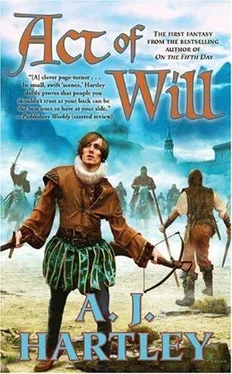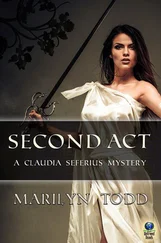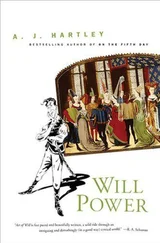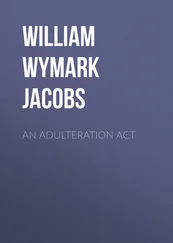Andrew Hartley - Act of Will
Здесь есть возможность читать онлайн «Andrew Hartley - Act of Will» весь текст электронной книги совершенно бесплатно (целиком полную версию без сокращений). В некоторых случаях можно слушать аудио, скачать через торрент в формате fb2 и присутствует краткое содержание. Год выпуска: 2009, ISBN: 2009, Жанр: Фэнтези, на английском языке. Описание произведения, (предисловие) а так же отзывы посетителей доступны на портале библиотеки ЛибКат.
- Название:Act of Will
- Автор:
- Жанр:
- Год:2009
- ISBN:978-0-7653-2124-4
- Рейтинг книги:5 / 5. Голосов: 1
-
Избранное:Добавить в избранное
- Отзывы:
-
Ваша оценка:
- 100
- 1
- 2
- 3
- 4
- 5
Act of Will: краткое содержание, описание и аннотация
Предлагаем к чтению аннотацию, описание, краткое содержание или предисловие (зависит от того, что написал сам автор книги «Act of Will»). Если вы не нашли необходимую информацию о книге — напишите в комментариях, мы постараемся отыскать её.
Act of Will — читать онлайн бесплатно полную книгу (весь текст) целиком
Ниже представлен текст книги, разбитый по страницам. Система сохранения места последней прочитанной страницы, позволяет с удобством читать онлайн бесплатно книгу «Act of Will», без необходимости каждый раз заново искать на чём Вы остановились. Поставьте закладку, и сможете в любой момент перейти на страницу, на которой закончили чтение.
Интервал:
Закладка:
“Good day, my lord,” I said on cue. “I feared I’d come too late.”
I was Julia, a minor love interest in a play largely preoccupied with a series of bizarre poisonings. I’d played the part a dozen times, and though it was a smallish role by my standards, I had some speeches in the fourth act in which I whined about justice and honesty and got to rant and wail a bit. Sometimes the audience even cried.
Not today, I thought. If there was any weeping to be done, it would be me, crying over an empty purse and being drummed out of the company for dishonesty. And it might be worse. Brundage and Rufus were men of little imagination, but they usually came up with something terse and painful in the way of punishment. Once when one of the prop boys had been caught listening in on some conversation they had wanted to keep to themselves, they had cut off his right earlobe to make the point. It was as close as they came to whimsy.
Twenty lines into the scene, Rufus had an exit. Usually it was a relief to see him lumber out of sight, and the play as a whole picked up as those still onstage got to do more than navigate around his cluelessness, but not today. I knew that the moment he got off, Brundage would be waiting to tell him how I had adjusted his funds, and by the time I headed into the green room, they’d be ready to have a little word with me. Except that it wouldn’t be a word. It would be something altogether different involving an oak cudgel and a bit of lead pipe. Whether or not they would hand over whatever was left to the Empire, I couldn’t say, but being welcomed into the company after this seemed a long shot.
I watched him go off, my guts hollow, and it was like I’d never been onstage before. I knew I had lines, but for a moment I just stood there, my mind blank, feeling the audience starting to watch me in that too-curious way they have when they sense someone screwing up, like hyenas spotting a wounded gazelle. Rafe Jenkins glowered at me across the stage.
“So, Lady Julia,” he said, completely buggering up the verse, “you already spoke to my lord Francisco?”
“What?” I said, tearing my eyes from the stage door where Brundage and Rufus were whispering just out of the audience’s sight-line. “Oh, right. Yes. I did.”
Someone in the front row nudged her neighbor and giggled. Even in my stark, bewildered terror, a tiny part of me hated her for it.
“And,” said Rafe, laboring and glaring still more pointedly, “Lord Francisco told you that-”
“That,” I said quickly. “Something. Yes. He told me something.”
It was like I was watching someone else, some stupid kid in a dress who had no right being onstage in public.
A ripple of mirth coursed through the entire pit and I flushed. There was a long pause and Rafe glared at me. I had no idea what my lines were. I couldn’t remember the plot or who I was supposed to be. All I could see clearly was Rufus waiting for me in the green room with his cudgel. Then there was a bang at the back of the house and, for the briefest of moments, things seemed to be looking up.
The bang came from the main street entrance into the theatre. I heard shouts, and the crowd standing in the pit began to part like sheep before a dog. Probably a rowdy drunk, I thought: just the excuse I needed to slip away until things cooled down a little.
But it wasn’t a drunk. It was a man on a horse, riding right into the theatre. He wore silver plate armor and a white cape. Behind him were twenty foot soldiers: Diamond Empire guards. There was a murmur of discontent, but the air smelled of unease, even panic. Nothing like this had ever happened before.
The mounted officer produced a roll of parchment and, as his horse skittered to a halt on the cobbles, started to read aloud in one of those voices that you can tell isn’t used to being messed about.
“On behalf of the Diamond Empire, governors of these territories,” he said, “I hereby declare this and all such theatres permanently closed as houses of rebellion and immorality. The building will be demolished by fire and the land impounded by the state. The following lewd and seditious persons are to be taken into Empire custody for their part in the playing and writing of plays and entertainments unbecoming to the dignity of an Empire territory.”
I stared at him. He couldn’t be serious. Close the theatres? Arrest the writers? It was madness.
The crowd thought so too. There was a surly grumbling from all over the building and a scattering of boos and hisses.
The officer nodded as if this was to be expected, and the soldiers drew their weapons. They were serious.
“William Hawthorne,” said the officer.
“Hello?” I said guilelessly. “Yes?”
The officer paused.
“I’m reading the list,” he said.
“List?”
“Of those who are to be arrested,” he added with steely patience.
“Ah,” I said. “William who?”
“Hawthorne,” said the officer. “Isn’t that you?”
“Me?” I said. “No. Never heard of him. I’m just a kid.”
“That’s Hawthorne, all right,” said a big, booming voice from the stage-left side. It was Rufus. He took a step out onto the lip of the stage and pointed a thick finger at me. “William Hawthorne.” He added, in case anyone might have missed the gist of the chat thus far, “Actor, playwright, thief, liar, and all-round snake.”
It was his most flawless performance to date.
The officer considered this. Then, returning his eyes to the list, he said simply, “Take him.”
SCENE II Making an Exit
Sedition? I was an apprentice actor who had some small talent with a pen. How was that sedition?
It made no sense, but the Empire tossed that word around with fond abandon, and anyone tarred by that particular brush wouldn’t see the light of day for some considerable time. Hadn’t a poet in Freescroft had a hand cut off only a couple of days ago? I wasn’t sure, but it suddenly seemed more than likely. And the fines! Why must authorities persist in thinking that actors have some secret treasure trove? At least if they demanded one of my hands, I could oblige. If they wanted silver, I was really screwed.
All this mental rambling took about three seconds, during which the young troopers in the pit readied themselves as if they expected some monstrous grizzly to come crashing towards them. In fact, of course, I was an adolescent in a dress-a skinny adolescent at that, whose combat skills were limited to the ability to deliver heroic battlefield speeches from old plays.
Panic set in. I had no choice but to turn myself over.
Having reached that conclusion rather reasonably, I cannot say exactly what it was that made me scale one of the pillars that supported the stage canopy and scramble over the rail onto the balcony. Maybe my simmering resentment of the Empire had finally taken over. Maybe I was standing up for the oppressed in the face of overwhelming force. Maybe I was outraged that the art of the theatre should be so demeaned by these thuggish philistines. Maybe, and this was more likely, I just hated the idea that Rufus’s limited intellectual abilities should be so instrumental in bringing me to “justice.” Yes, that was more like it. My pride was injured.
Stick around, I thought, and they’ll wound more than your pride.
Two of the soldiers had unslung bows and were training them in my direction. By the time I had hauled myself onto the balcony-and try doing that in a floor-length velvet gown-one white-feathered arrow had whistled over my head and another one had slammed into the oak rail just below my hand. The crowd murmured, coming to life as if the play had picked up where it left off. I gave a startled yelp, half dumb realization of what I had begun to do, half sheer bladder-stretching terror.
Читать дальшеИнтервал:
Закладка:
Похожие книги на «Act of Will»
Представляем Вашему вниманию похожие книги на «Act of Will» списком для выбора. Мы отобрали схожую по названию и смыслу литературу в надежде предоставить читателям больше вариантов отыскать новые, интересные, ещё непрочитанные произведения.
Обсуждение, отзывы о книге «Act of Will» и просто собственные мнения читателей. Оставьте ваши комментарии, напишите, что Вы думаете о произведении, его смысле или главных героях. Укажите что конкретно понравилось, а что нет, и почему Вы так считаете.












